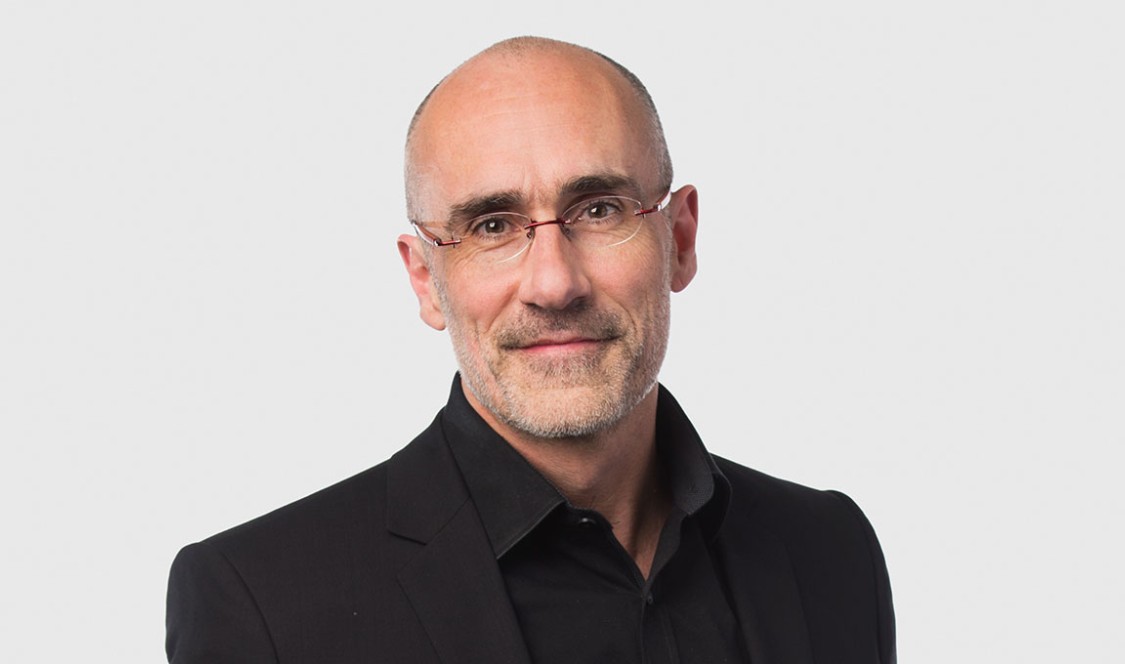“A small minority,” cautions Arthur Brooks, “benefits from telling people that they are unsafe and should be afraid.” They drive a “culture of contempt” that can be cured by an approach that seems obvious but has proved elusive: reminding people to treat others with respect, and that the free exchange of ideas is a foundation of our political system.
Commencement 2019
Claremont McKenna College will host its 72nd commencement ceremony at 2 p.m., Saturday, on Pritzlaff Field. Arthur Brooks is the featured speaker and will receive an honorary degree of Doctor of Laws. Timothy Wright ’77 will deliver the invocation and receive the Distinguished Public Service Award. Bruno Youn ’19 is the student speaker.
Brooks, the long-time head of the American Enterprise Institute and featured speaker at Claremont McKenna College’s 2019 commencement on Saturday, contends that opening our hearts to people we disagree with is essential for our democracy.
Brooks believes we can heal. “What we have to remember is that when people are in a lot of pain in a family or in a society, there is an opportunity for transcendence,” said Brooks. “This is an incredible opportunity to have an open discussion about our need to love each other and come together.”
In his latest book, Love Your Enemies: How Decent People Can Save America from the Culture of Contempt, Brooks explores the rise of this social media and television “outrage industrial complex” and offers suggestions to help us move beyond it. A social scientist and practicing Catholic, Brooks offers a slew of studies to bolster his points, as well as religious references, beginning with a book title taken from Matthew 5:44. He will join the faculty of the Harvard Kennedy School and Harvard Business School this summer, was recently appointed Bowdoin College's inaugural Joseph McKeen Visiting Fellow, and is also the author of two New York Times bestsellers, The Conservative Heart, and The Road to Freedom.
Brooks said the book began taking shape in 2014, when he concluded that the country was being torn apart by increasingly vitriolic political debate. It was not disagreement, or even anger, that concerned him, but contempt—“a cold emotion” that indicates someone is no longer looking for a solution or debate. “People started thinking that the people who they disagreed with were evil or less human,” said Brooks. “One in six people had stopped talking to a relative because of politics,” he said. “That’s insane.”
The culture of contempt is also threatening free speech in academia, Brooks said. “This is an environment that trades in ideas. You have to separate ideas from people. An idea is not an existential threat,” he said.
Brooks, a frequent lecturer as well as contributor to The Washington Post and The New York Times, spoke at the Marian Miner Cook Athenaeum in 2017. “I think CMC is a real beacon,” said Brooks, noting initiatives such as the Open Academy and CMC’s commitment to faculty political diversity.
Brooks said he advises students grappling with today’s polarized culture to “tune out the outrage industrial complex, both for their protection and so they can become better leaders.” He encourages people to adopt a one-in-five policy on social media—four positive posts for every negative one. Most important, he said, is learning to truly listen to others before speaking. “Listening is an incredible skill people are not learning,” he said. “It is fundamental to meeting every intellectual goal.”
Loving your enemies is also practical. “If you want to persuade someone, hatred won’t get it done,” he said. Beginning conversations, especially difficult ones, with an acknowledgement of a shared goal develops a connection and defuses negative emotion. The approach also can make a person happier. “When you treat someone with contempt, your own anger and depression and isolation increase,” said Brooks. “It does give you minor satisfaction in the moment, but then you become less happy than you had been. And you are part of the problem.”
Brooks has seen the impact on his own life. He admitted there have been times he fell into the same trap—rolling his eyes at a political opponent during a television appearance, for one. “I wrote the book because I want to permanently change Arthur Brooks,” he said. “In my job, at times, I am going to be treated with contempt and as less than human. That is my opportunity to stop and choose love, and it has been really good for me.”
—Susan Price

